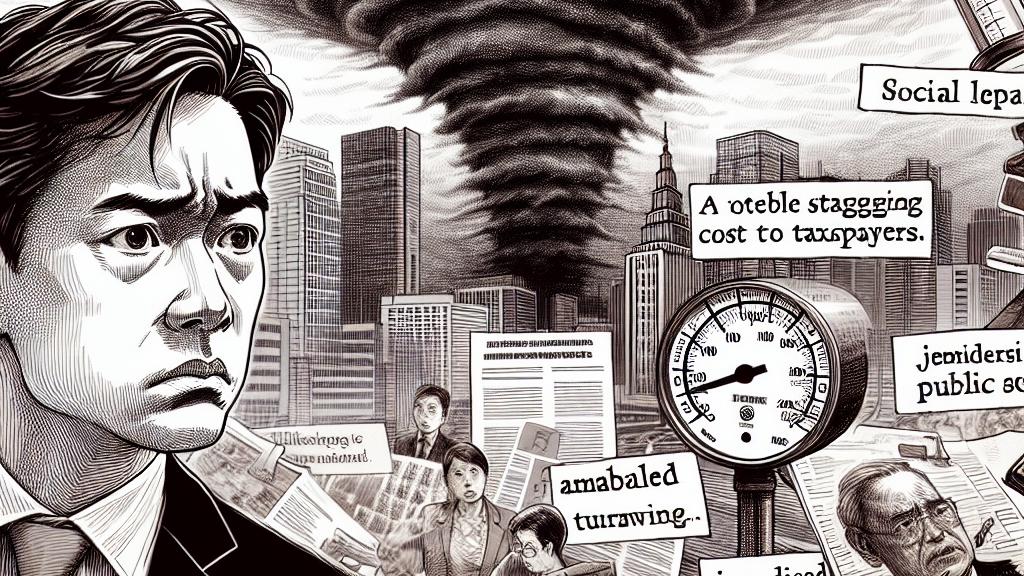Allegations of Election Bribery Against Saito Motohiko, Hyogo Governor
Overview
- Hyogo Governor Saito Motohiko faces serious allegations involving bribery linked to hiring a PR firm for social media strategies during his election.
- If proven guilty, this could lead to his disqualification and an expensive repeat election, stirring significant public outrage.
- The unfolding scandal highlights pressing concerns over political ethics and public trust in Japan's electoral system.

Unpacking the Allegations
In the vibrant region of Hyogo, Japan, a political tempest is brewing as serious allegations emerge against Governor Saito Motohiko. Reports indicate that during his campaign for re-election, Saito allegedly paid a public relations firm to navigate social media strategies, raising red flags about possible violations of the Public Offices Election Act. This law is designed to uphold fair electoral practices by prohibiting bribery and financial influence intended to sway voters. Imagine the consequences if these allegations are substantiated: Saito could not only lose his position but may also face a new election that could cost taxpayers a staggering 1.8 billion yen. Such a financial burden could dramatically impact essential public services and community programs that rely on limited resources. Adding to the drama, Saito's recent TV appearance failed to address these critical allegations, prompting widespread speculation and concern about his leadership.
Legal Implications and Public Response
The implications of these allegations go far beyond mere political embarrassment—they plunge into legal territory filled with potential ramifications. Under the Public Offices Election Act, strict rules dictate appropriate campaign conduct, and even subtle infractions can initiate severe penalties. Legal experts have been vocal, emphasizing that bribery includes not just the act of payment but also any agreement to provide financial support for electoral purposes. Consequently, should investigations confirm that Saito crossed legal boundaries, he could be facing substantial penalties—ranging from hefty fines to possible imprisonment. This scenario has ignited public discourse, with citizens and political analysts calling for stricter accountability and a re-evaluation of ethical standards in political campaigning. History has shown us numerous instances where political figures fell from grace due to corruption, reminding everyone of the continuous struggle between ethics and ambition in governance.
Broader Implications for Political Integrity
The broader implications of this scandal can resonate deeply within Hyogo's political landscape and ripple across Japan's governance. If Saito is charged and a trial ensues, essential governance matters—like disaster response or economic recovery—risk falling to the wayside amidst the legal proceedings. Public trust is fragile, and when scandals emerge, they often have a domino effect, eroding civic engagement and voter participation. The root of democracy lies in the public’s belief that their leaders act with integrity and transparency, but repeated instances of misconduct can lead to disillusionment. Thus, what began as a contentious re-election campaign could transform into a crucial turning point for electoral reform in Japan, emphasizing the urgent need for ethical conduct and accountability among public officials. As this situation develops, it serves as a potent reminder of the importance of maintaining untarnished integrity in politics, ensuring that leaders are held accountable for their actions and decisions.

Loading...